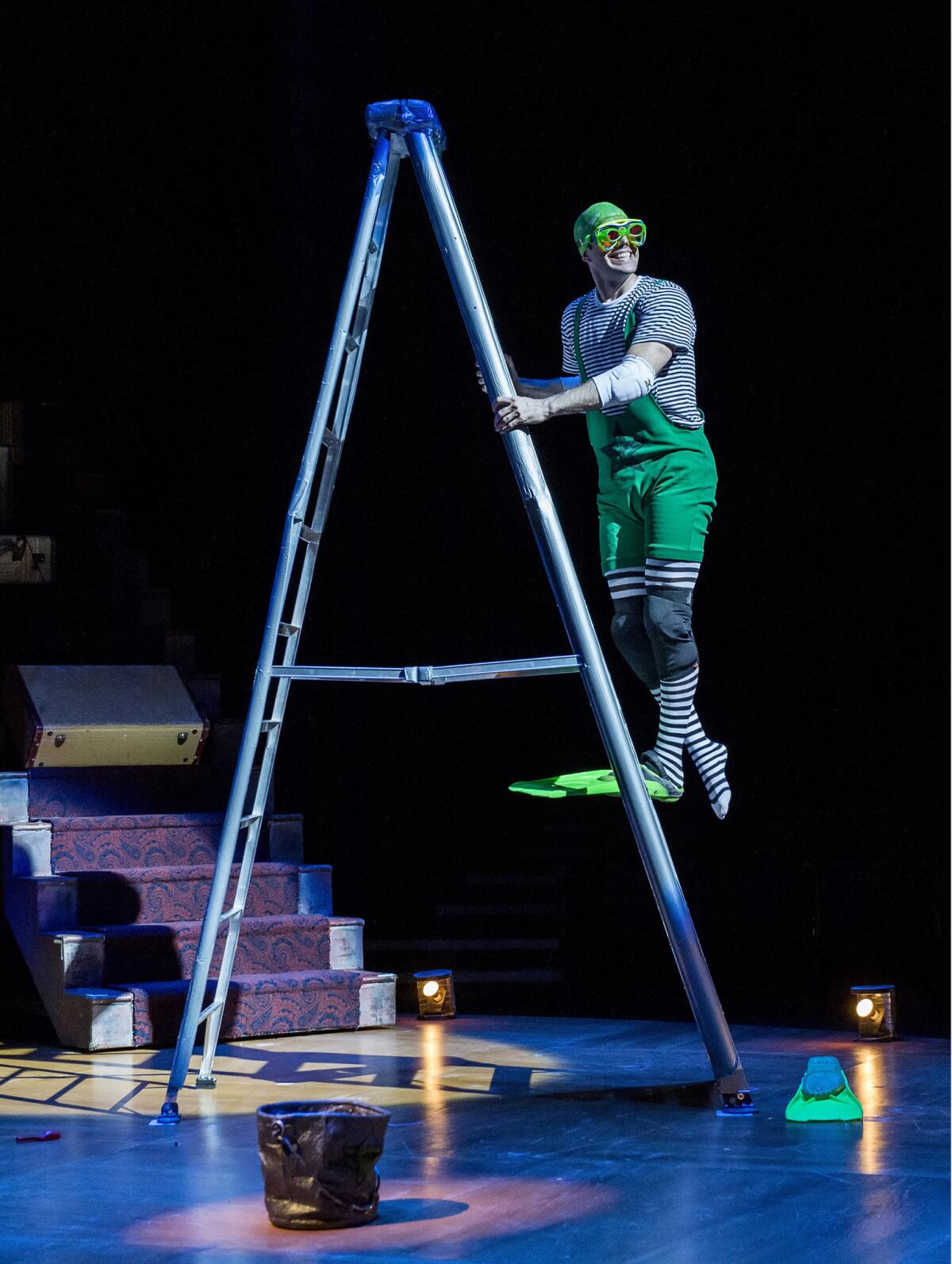The end of Ringling Bros.: What the Greatest Show on Earth meant to a man raised in the circus
When Ringling Bros. and Barnum & Bailey Circus announced on Saturday that it would be folding after 146 years, I was surprised that I was upset.
Since I was a kid I’ve had a complicated relationship with the Greatest Show on Earth. It was the biggest and best-known circus in the United States, long before Cirque du Soleil had entered our collective consciousness. Also, Ringling was always what my family wasn’t.
My parents founded the Pickle Family Circus in San Francisco in the 1970s in opposition to circuses like Ringling. To this day, many circuses still model themselves after what my family was doing, whether they know it or not.
So why do I feel such a loss?
Ringling Bros epitomized the American circus: three rings, pageantry and lots to see at all times. Before I go any further, a distinction has to be made about the art of circus and the use of animals in circus. Contrary to what some may think, circus is not synonymous with animals. My parents’ circus, in the vanguard of the New American Circus movement, found no need for animals. Many shows then and now find animals unnecessary.
Circus is an art form performed by individuals who believe they can accomplish what was thought to be impossible through nothing more than practice.
P.T. Barnum and the Ringling Bros., however, did want animals — and lots of them. That tradition remained along with the three rings, the train and the ringmaster in a top hat proclaiming “may all your days be circus days.”
To me, circus is chiefly about human achievement. From the days of Philip Astley, the 18th century Englishman credited for inventing the modern circus, it has been an art form performed by individuals who believe they can accomplish what was thought to be impossible through nothing more than practice.
Ringling Bros. was that, of course, on steroids. Starting at the top, Barnum wanted bigger and more of everything, and the more impossible the better. But he also knew that at its core, the circus was about drawing everyone together — young and old, strangers and family — to watch the impossible. Together we’d witness performers whom we wish we could be. We’d imagine that could be us on the flying trapeze. This held true for all circuses all over the world.

To Ringling’s credit, the company put in a lot of miles to reach a lot of people. So many, in fact, that the country has a collective connection to Ringling. Maybe you found the treatment of the animals abhorrent, but you do know what a classical American circus is — as have so many generations before you. With the closing of Ringling, that touchstone is starting to crumble. There are other circuses, of course, but none that held the same place in our history as Ringling, for better or for worse.
Over the weekend I spoke with my sister, Gypsy Snider, a circus artist, director and co-founder of Les 7 Doigts de la Main, a Montreal-based circus company. She too was sad to hear about the closing of Ringling.
She reminded me that my father would take us every year to see “the big show,” and we’d visit three times so we could concentrate on each individual ring. We’d go backstage after to say hello to friends in the cast and to look at the famous Ringling train that carried all the equipment, performers and crew and that seemed to go on for miles. The spectacle was impressive, the noise was all consuming, and I remember looking at all the fascinated children and parents excited and intoxicated by it all. So was I, even as an insider. It was an emporium of skill for us all to watch with wonder, as every circus should be. When something like that ends, nostalgia seems appropriate.
SIGN UP for the free Essential Arts & Culture newsletter »
What does this mean if an institution like Ringling Bros. can no longer remain in business? I don’t know why the show is closing, but I do know we now live in an era where the priority is not live performance. Instead, we want our personal entertainment when we want it, on demand, with headphones. I’m as guilty of this as anyone. As a former circus performer, and a new father, that saddens me. Perhaps I long for the time when kids didn’t socialize with virtual friends but rather physically came together for a shared experience, for entertainment that built connections and made memories. Because that’s what happens at the circus, in the stands for the audience and in the ring for the performers.
I will gladly bring my family to see the one-ring shows that remind me of the way I grew up. But I will miss Ringling, not only because of the context that it brings to these new circuses but also because of the link that it provided to our collective past.
May all your days be circus days.
Follow The Times’ arts team @culturemonster.
ALSO
Ringling Bros. circus to end 'Greatest Show on Earth' after 146 years
Who needs the circus when you've got politics? Reaction to the pending closure of Ringling Bros.
The biggest entertainment stories
Get our big stories about Hollywood, film, television, music, arts, culture and more right in your inbox as soon as they publish.
You may occasionally receive promotional content from the Los Angeles Times.







